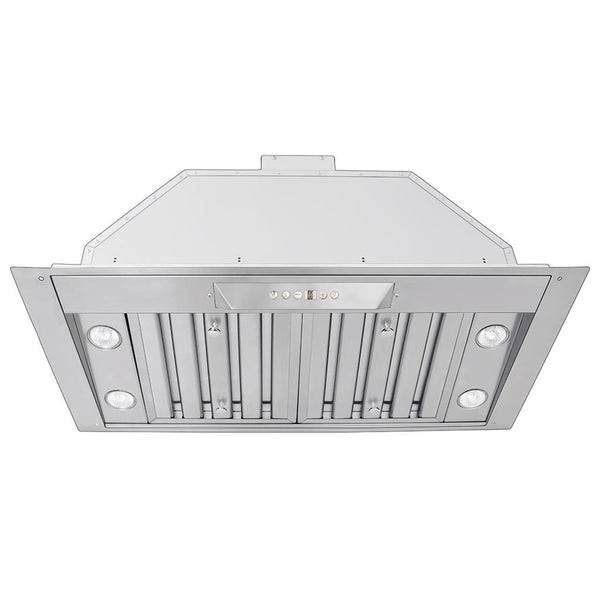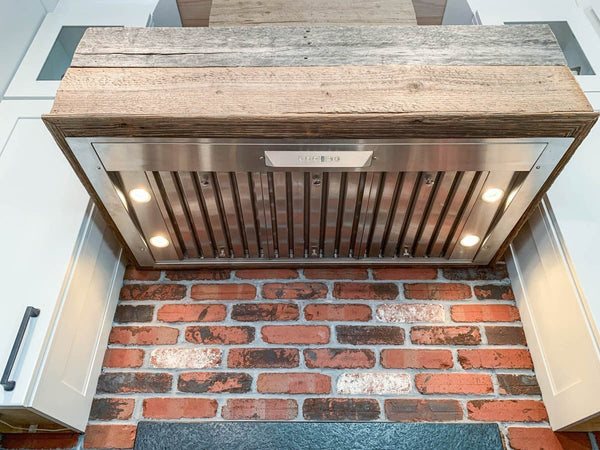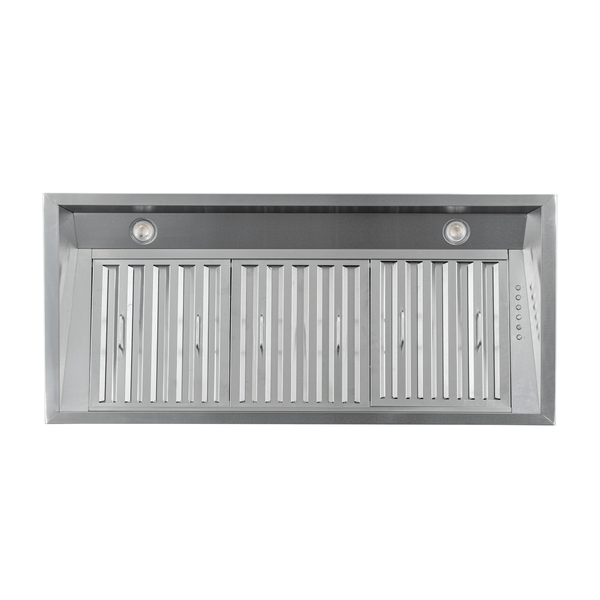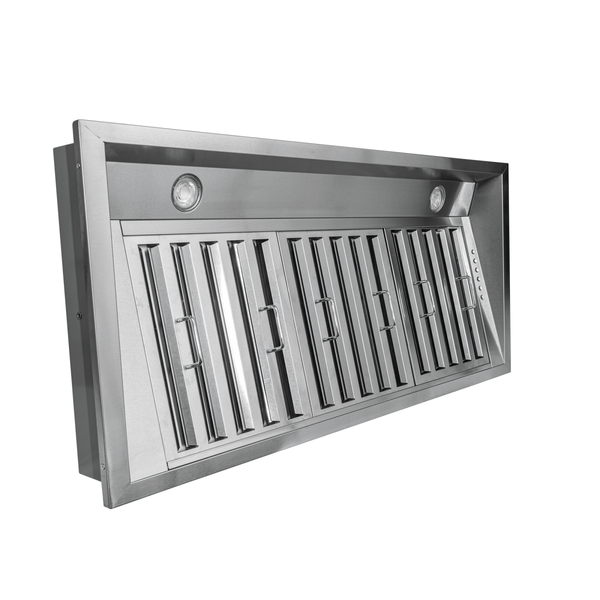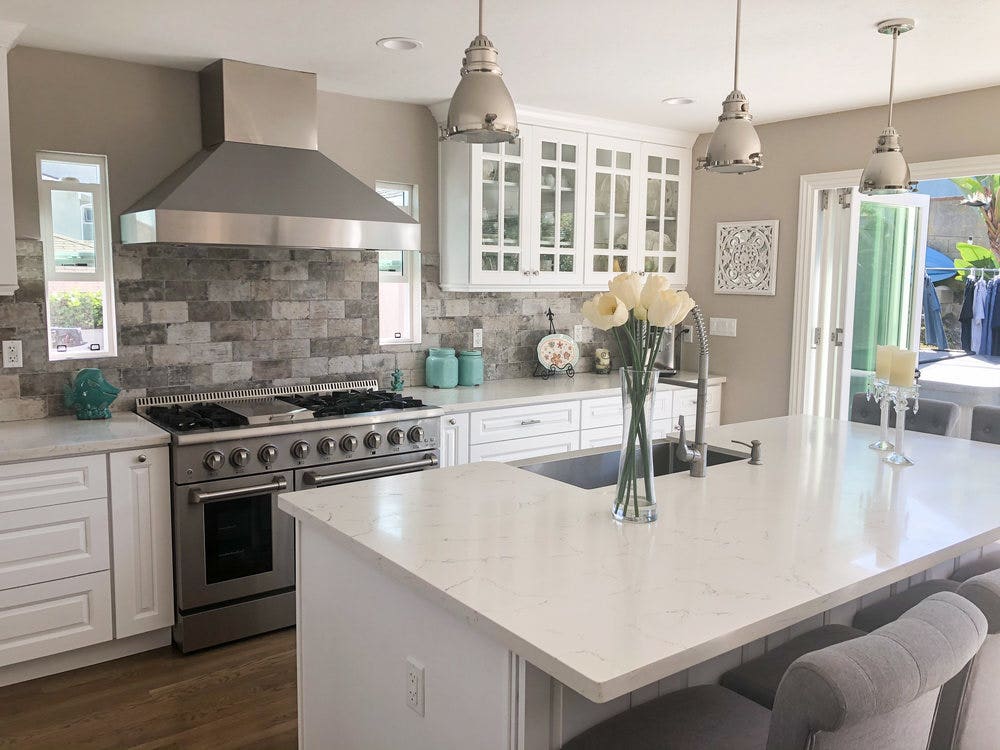Many people cook at home at least a few times a week. Some even cook every day, multiple times a day. When cooking, safety is vital – especially for frequent cooks. Your kitchen range produces a lot of heat and smoke, so adequate kitchen ventilation is important.
Gas stoves produce more heat than electric stoves. But, ventilation will improve indoor air quality regardless. If you barbecue, keep in mind that grills produce more heat and grease than indoor ranges.
Maybe you have been barbecuing for a while and the excess smoke and grease is bothering you. Perhaps you are planning a kitchen remodel. Or, maybe you just want to learn about range hoods. Regardless, you might be wondering: is it safe to cook without a range hood?
It is not safe to cook without a range hood. Everyday cooking produces harmful contaminants including carbon dioxide, carbon monoxide, formaldehyde, and more. Without proper ventilation, these toxins sit in your kitchen and move to other areas of your home. This can cause headaches, skin irritation, and nausea, among other health effects. Even if you rarely cook, consider buying a hood to keep your kitchen well-ventilated.
It is particularly important for your safety to buy a range hood over a gas stove. Natural gas creates most of the indoor air pollution from your cooking. But, even with an electric stove, a powerful range hood keeps the smoke and fumes in your kitchen down. It also keeps grease droplets off surrounding surfaces and appliances.
Do I need a range hood?
Yes; a range hood improves your indoor air quality and makes cooking easier. Some building codes may require that you install a range hood. We unpacked this question in our complete guide right here.
What range hood do I need?
Every person needs a different range hood depending on their cooking habits and kitchen setup. Not necessarily a different style, like wall or island, but a different CFM or ducting.
Before you buy a range hood, it’s important that you know how much CFM you need. Otherwise, even with a hood, your kitchen might not be safe. If you cook often, a low-CFM kitchen hood (about 600 CFM) will not be enough to vent heavy grease, fumes, and cooking smells from your kitchen. You want a hood that will vent all the contaminants in minutes.
Consider the following questions to decide on the CFM of your hood:
How often do you cook?
For those who cook more than four times a week, you’ll want a 900+ CFM range hood. If you cook multiple times a day or love Asian food you may want 200-300 more CFM.
Do you enjoy Asian cooking or greasy food?
If you enjoy Asian food or greasy food once or twice a week, 900 CFM is a great option. If you cook Asian food or greasy food more often, buy a 1200+ CFM range hood.
Do you cook for yourself or for your whole family?

If you cook for yourself, you will be cooking for less time and cooking less food. This won’t produce as many harmful chemicals and contaminants compared to cooking for your whole family. If you live by yourself, for example in an apartment or condo, check out our 600 CFM range hoods – some of the best for apartments! Otherwise, 900 CFM or more is the best option for you.
If you cook often, enjoy Asian cooking, and cook for your family, you’ll not only want a high CFM hood but also a ducted hood. Ducted hoods are more efficient than ductless hoods at venting all the cooking exhaust outside your home – and they vent it out much faster.
Beyond CFM, you also have to choose the style of your hood. Here are a few questions to consider.
Where is your kitchen range?
If your kitchen range is on a wall counter, you’ll want a wall range hood.
If you mount kitchen cabinets above your range, you’ll want an under cabinet hood.
If you installed your range over an island, you need an island range hood.
For vents that fit inside custom hoods, go with a range hood insert.
Finally, if you have a kitchen range on your outdoor patio, buy an outdoor range hood.
Where do you have room for ductwork in your walls?
To install a ducted range hood, you need room for ductwork. Ideally, you don’t want it to interfere with any electrical wiring, studs, or support beams. If you have to navigate around a couple of obstacles using a duct elbow, that’s fine.
But, never use more than two elbows. This will cause too much resistance and greasy kitchen air won’t make it to the outside of your home. To learn more about kitchen hood ducts and duct size, click here.
What is your budget?
Generally, island hoods and outdoor hoods are more expensive than wall and under cabinet hoods. Under cabinet hoods are the cheapest reliable option for your kitchen.
Depending on how comfortable you are with installation, you may need to factor in range hood installation cost as well. Island range hoods are more difficult to install since they vent through the ceiling, so they cost more than the other types of hoods.
Other Things to Consider
There are a few other things to consider when buying an exhaust fan. They don’t have a significant impact on the hood’s efficiency but are up to your personal preference.
Type of Filters
Generally, stainless steel filters are the way to go. They are much more durable than aluminum filters – and they’re dishwasher safe. The most powerful ducted hoods feature stainless steel baffle filters. Baffle filters are the most efficient filter for range hoods. They catch all the grease in baffles as the air passes through your vent hood.
Another reliable option for filters is stainless steel mesh filters. Mesh filters are also dishwasher safe and effective at capturing grease from your kitchen air.
Ductless range hoods use charcoal filters to neutralize cooking odors and trap cooking exhaust. For more information about how to replace your charcoal filters, click here.
To learn more about range hood filters, check out our comprehensive guide.
Lighting and Number of Lights
The most common lighting for exhaust fans is LED lights. These are some of the brightest and long-lasting lights on the market. Some hoods also feature dimmable Halogens, which are a little more versatile. If you want more lighting in the kitchen, look for a hood with, well, more lights. This will help you have a smooth cooking experience.
Control Panel
The most common control panels are stainless steel push buttons and touch panels. You also might see dial knobs on some models. The type of control panel your hood has is not too important. Go with the one you like best!
Recap
Hopefully this article helped you decide if you want a kitchen exhaust hood for your kitchen. To improve your indoor air quality now, check out the professional range hoods below!
Or, for more information on range hoods, take a look at our other articles. Thanks for reading!
Related Articles
Range Hood Size - Ultimate Guide
Range Hood Mounting Height - Complete Guide
